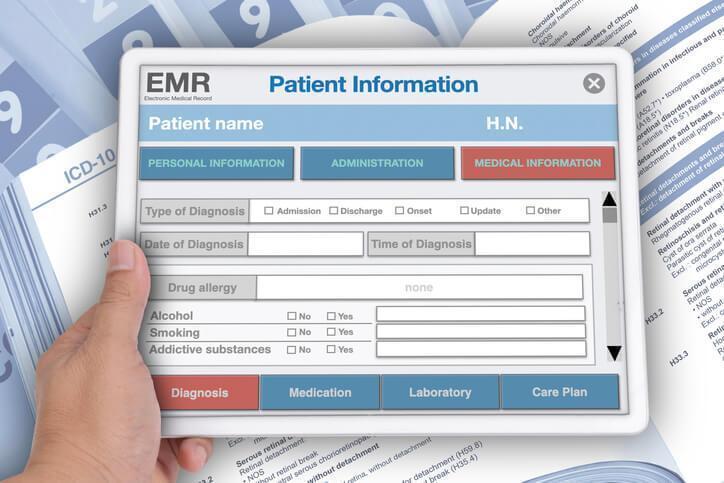LEARN YOUR WAY: IN-CLASS┃HYBRID┃ONLINE

Medical office administration is evolving rapidly, driven by technological advancements and an increasing demand for efficient healthcare services. Staying ahead of emerging trends is essential for those considering a medical office assistant program. From AI-powered administrative tools to a greater emphasis on patient-centered care, these developments are shaping the future of medical office administration.
As the healthcare sector expands, medical office assistants are crucial to maintaining smooth operations, ensuring patient satisfaction, and supporting healthcare professionals. If you're preparing for a career in this field, understanding the latest trends can give you a competitive edge.
1. Increased Use of Electronic Health Records (EHRs) and Cloud-Based Systems
One of the most significant changes in medical office administration is the shift towards fully digital medical record-keeping. Cloud-based electronic health record (EHR) systems are becoming the standard in healthcare settings, providing seamless access to patient data, improved communication between healthcare providers, and enhanced security.
For aspiring medical office assistants, familiarity with EHR software is essential. Many medical office assistant training programs, including ACA’s, incorporate EHR learning to ensure students are prepared for the modern workplace.

Modern medical office assistant training programs now incorporate EHR learning
2. Telemedicine and Virtual Healthcare Services
Telemedicine is reshaping the way patients receive healthcare. Virtual consultations are becoming increasingly common, reducing the need for in-person visits while improving access to medical care.
Medical office assistants are now expected to manage virtual appointments, coordinate telehealth services, and assist with online patient documentation. Understanding the nuances of telemedicine administration can help you stay relevant in an increasingly digital healthcare landscape.
3. Automation and Artificial Intelligence in Administrative Tasks
AI-powered tools are streamlining medical office administration by handling tasks such as scheduling, patient reminders, and data entry. Chatbots and automated systems can assist patients with appointment bookings, reducing the administrative workload on staff.
While automation improves efficiency, medical office assistants remain indispensable for personalized patient interactions and problem-solving. Enrolling in a medical office assistant course that includes hands-on administrative training will help students balance automation with human-centered service.

Medical office assistant courses help students balance automation and patient service
4. Greater Emphasis on Patient Experience and Engagement
As healthcare shifts toward a more patient-centered model, medical office assistants play a vital role in ensuring a positive patient experience. This includes clear communication and efficient appointment scheduling to compassionate front-desk interactions.
Medical offices use feedback surveys, online portals, and streamlined check-in systems to improve patient satisfaction. Those entering the field should focus on developing strong customer service and organizational skills to meet evolving patient expectations.
5. Expanded Career Opportunities and Specialized Roles
The demand for medical office assistants is opening up new career pathways. Many professionals are now specializing in areas such as medical billing, insurance coordination, and healthcare administration. Others work in specialized healthcare settings, including dental offices, physiotherapy clinics, and diagnostic imaging centers.
The medical office assistant program at ACA prepares students for diverse employment opportunities by providing administrative and clinical training. Whether you aim to work in a hospital, private practice, or government healthcare agency, a strong foundation in medical office administration will set you up for success.
How ACA’s Medical Office Assistant Program Prepares You for a Career in Medical Office Administration
At ACA, students receive hands-on training through a medical office assistant training program that combines theoretical knowledge with practical experience. The curriculum includes:
- In-class and online learning options
- A four-week, full-time clinical placement
- Training in medical and dental office procedures
- Instruction on EHR systems and patient management software
With a growing demand for trained medical office assistants, now is the perfect time to pursue a rewarding career in healthcare administration.
If you’re ready to enter a fast-paced, rewarding healthcare career, ACA’s medical office assistant course provides the skills and experience you need to succeed. Explore the program today and take the first step toward a future in medical office administration.
Are you looking for a comprehensive Medical Office Assistant Course?
Contact ACA for more information.


